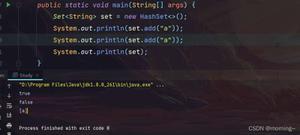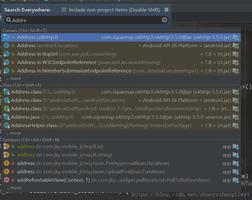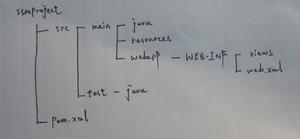详解JavaScript中关于this指向的4种情况
对很多前端开发者来说,JavaScript语言的this指向是一个令人头疼的问题。先看下面这道测试题,如果你能实现并解释原因,那本文对你来说价值不大,可以直接略过。
**开篇测试题:**尝试实现注释部分的Javascript代码,可在其他任何地方添加更多代码(如不能实现,说明一下不能实现的原因):
let Obj = function (msg) {
this.msg = msg
this.shout = function () {
alert(this.msg)
}
this.waitAndShout = function () {
// 隔5秒后执行上面的shout方面
setTimeout(function () {
let self = this
return function () {
self.shout()
}
}.call(this), 5000)
}
}
题目的参考答案在文末,但我不建议你直接查看答案,而是先阅读并思考文章的中的知识点。
一、在对象属性中的this指向问题
对象的属性是函数,那么函数中的this指向的是对象本身,即例子中的obj
var obj = {
x: 123,
fn: function () {
console.log(this) // {x: 123, fn: ƒ}
console.log(this.x) // 123
}
}
obj.fn()
对象的属性是函数,函数内部还有函数,那么这个二级(及以上)函数的this指向的是window
var obj = {
x: 456,
fn: function () {
console.log('fn', this) // {x: 456, fn: ƒ}
var f1 = function () {
console.log('fn.f1', this) // Window {postMessage: ƒ, blur: ƒ, focus: ƒ, close: ƒ, parent: Window, …}
console.log(this.x) // undefined
var f2 = function () {
console.log('fn.f2', this) // Window {postMessage: ƒ, blur: ƒ, focus: ƒ, close: ƒ, parent: Window, …}
}
f2()
}
f1()
}
}
obj.fn()
从上面的例子,我们可以总结出,对象属性中,嵌套超过一级及以上的函数,this指向都是window
二、构造函数中的this指向问题
构造函数中的一级函数,this指向通过构造函数new出来的实例(例子中的person)
var Person = function () {
this.name = 'linlif'
this.fn = function () {
console.log('fn', this) // {name: "linlif", fn: ƒ}
}
}
var person = new Person()
person.fn()
构造函数中的二级(及以上)函数,this指向的是window
var Person = function () {
this.name = 'linlif'
this.fn = function () {
console.log('fn', this) // {name: "linlif", fn: ƒ}
var f2 = function () {
console.log('f2', this) // Window {postMessage: ƒ, blur: ƒ, focus: ƒ, close: ƒ, parent: Window, …}
var f3 = function () {
console.log('f3', this) // Window {postMessage: ƒ, blur: ƒ, focus: ƒ, close: ƒ, parent: Window, …}
}
f3()
}
f2()
}
}
var person = new Person()
person.fn()
从上面的例子,我们可以总结出,构造函数中,嵌套超过一级及以上的函数,this指向的都是window
三、全局上下文环境中this指向问题
全局上下文环境,this指向浏览器的window对象,例如:
// 全局的this
console.log(this) // Window {postMessage: ƒ, blur: ƒ, focus: ƒ, close: ƒ, parent: Window, …}
console.log(this === window) // true
// 全局的普通函数
var global = function () {
console.log(this) // Window {postMessage: ƒ, blur: ƒ, focus: ƒ, close: ƒ, parent: Window, …}
}
global()
四、call()和apply()对this指向的影响
使用call()方法后,this指向call()方法的参数。使用apply()的结果和call()是一致的,这里不做赘述。关于call()和apply()用法的区别,请自行查询相关资料。
// 改变调用对象为gObj
var gObj = {
name: 'gName'
}
var aaa = function () {
console.log(this) // {name: "gName"}
console.log(this.name) // gName
}
aaa.call(gObj)
// 改变调用对象为window
var name = 'global'
var bbb = function () {
console.log(this) // Window {postMessage: ƒ, blur: ƒ, focus: ƒ, close: ƒ, parent: Window, …}
console.log(this.name) // global
}
bbb.call(this)
总结:这就是一些关于this的指向问题的个人理解了,如果发现不妥之处,欢迎在评论区指出,或者私信我。
彩蛋 开篇测试题的参考答案,仅供参考!(有意思的地方:题目中,函数名的第一个字母大写,已经暗示这是一个构造函数)
let Obj = function (msg) {
this.msg = msg
this.shout = function () {
alert(this.msg)
}
this.waitAndShout = function () {
// 隔5秒后执行上面的shout方面
setTimeout(function () {
let self = this
return function () {
self.shout()
}
}.call(this), 5000)
}
}
let obj = new Obj('msg')
obj.waitAndShout()
以上所述是小编给大家介绍的JavaScript中关于this指向的4种情况详解整合,希望对大家有所帮助,如果大家有任何疑问请给我留言,小编会及时回复大家的。在此也非常感谢大家对网站的支持!
以上是 详解JavaScript中关于this指向的4种情况 的全部内容, 来源链接: utcz.com/z/312699.html









